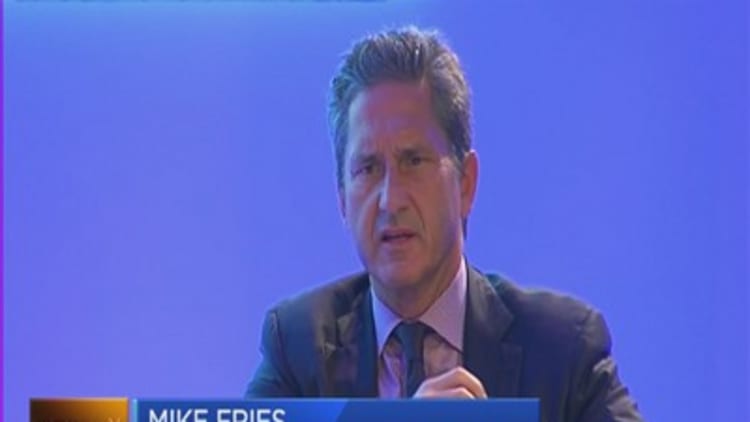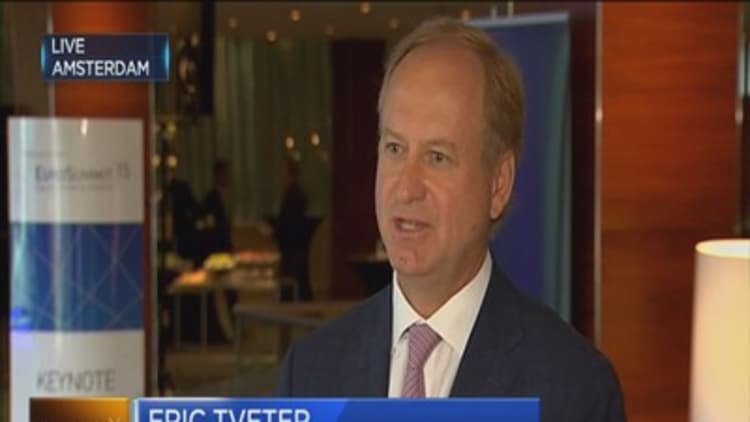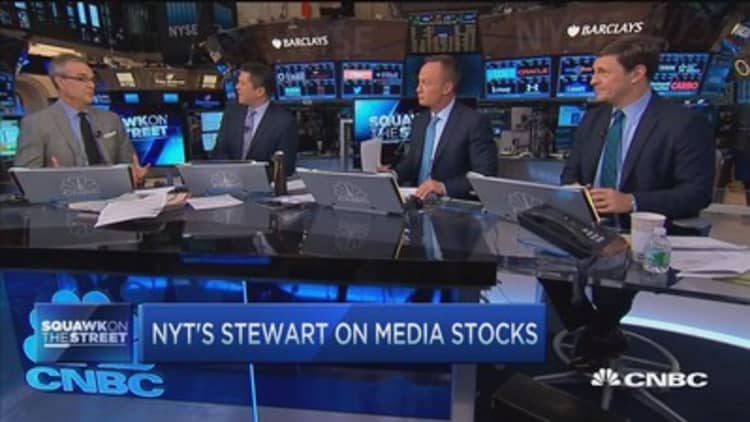
As global markets reel from a brutal selloff followed by a stunning rally, one sector has been battling a home-grown rout of its own over the last month: the cable and media industry, which was rocked early August by comments from Disney CEO Bob Iger about lower subscribers.
Some stocks lost 10 percent within a few days as a result, with the likes of Viacom and Time Warner hitting 52 week lows, before moderating losses.
The industry has been grappling with years of "cord cutting" - consumers, especially young people, cancelling or not even subscribing to traditional cable bundles and simply choosing their TV experience "a la carte," whether that's via Netflix, Hulu or Amazon Prime.
Additionally, the new trend of "skinny bundles" has emerged, which threaten make the "big bundles" -- which have proven so profitable for incumbents -- obsolete.
Analysts at Morgan Stanley warned: "Cord cutting is real. The only silver lining is that the market is now fully aware."
But what are the top cable executives making of the selloff?
Speaking to me during a panel discussion at industry conference CTAM in Amsterdam, Jeff Bewkes, CEO and chairman of U.S. cable giant Time Warner said a key change was needed -- TV content had to go on demand.
"The question is how do you take the programming that everybody wants and make it on demand. That's why the reaction is oversold, because the kind of pessimism or concern -- if it was right -- would mean the entire industry would never figure it out," he said.
"How to get this product everyone wants in a manner that makes sense -- obviously the industry will figure that out."
Mike Fries, CEO and president of Liberty Global, whose stock has been somewhat less affected over recent months, said he agrees in principle that the selloff has been overdone.
"I think it's a healthy thing at some level, a bit of a wakeup call for some media companies that maybe they need to take this more seriously," he said. "Some companies are very well positioned, other media companies, traditional content players, maybe not so much."

Both Bewkes and Fries insist their businesses can weather the storm. Time Warner in April launched its answer to streaming service Netflix – "HBO NOW" -- which Bewkes said had seen very good demand until now.
Liberty Global's European operation, UPC, has launched a similar service called "My Prime," which Fries said had seen "strong uptake, with higher penetration than Netflix".
An increase in streaming means that cable operators also see a benefit from increased demand for broadband services, offering a silver lining even to those companies that do not have what's known as an "over-the-top" offering. So-called OTT content – like that offered by Netflix or Amazon Prime -- is on-demand video and audio which is streamed via the Internet.
Responding to the threats of OTT streaming, the trend of "skinny bundles" and declining advertising revenues, the industry has seen a wave of consolidation -- and some less successful attempts. Most prominently, Comcast's bid for Time Warner Cable fell through, mainly for regulatory reasons, enabling Charter Communications to swoop in and snap up the company for $55 billion, announced in May.
It comes after 21st Century Fox dropped its unsolicited $75 billion dollar offer for Time Warner last year after the board refused to engage in talks.
Commenting on the offer in Amsterdam, Jeff Bewkes said, "it wasn't such a big offer" - drawing laughter from the audience – and added that there is, "nothing on the table when it comes to Fox right now."

"We should admit that we have a share buyback ongoing. When you have cashflow in a zero rate environment you have to use the money some way," he said.
"And if you believe in media earnings – we do – your choice is whose media earnings to buy. We like to buy earnings of the strongest media companies we know are growing, which is us. We have been growing earnings at 20 percent a year."
Liberty Global's Fries was more coy when asked about the ongoing discussion with Vodafone about an asset swap, announced earlier this summer.
"I have no news on this," he said, declining to give a timeline on when we might get an updates or resolution on this. Nomura analysts had previously said they expected some news on a deal in September.
Fries did reiterate his strategic interest in sports (F1) and owning content, though, as the group recently increased its stake in the U.K.'s ITV to just below 10 percent.
Finally, commenting on the uproar following the death of a prominent character on HBO's hit show "Game of Thrones" (spoiler alert!) and subsequent speculation that he might come back, Bewkes said: "We always kill off the star."
Fries chimed in: "It's cheaper," and Bewkes added: "Let me quote Mike Lombardo the programming head of HBO, he is dead… dead."

Disclosure: Comcast is the owner of NBCUniversal, the parent company of CNBC and CNBC.com.


